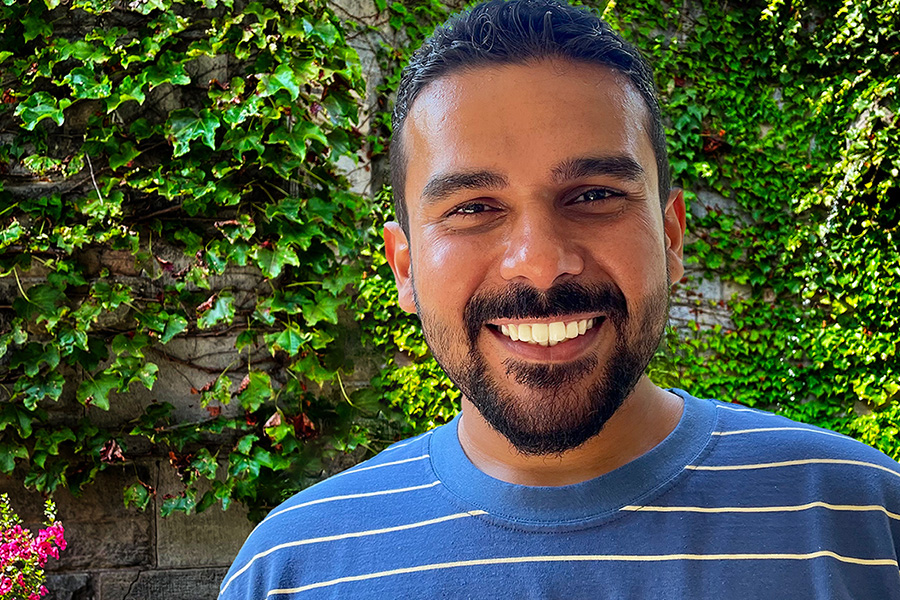Ashwin Saval is the type of person for whom leadership seems effortless. He, however, understands that leadership is a skill that requires cultivation, that there are many different ways to lead, and that insight can come from unexpected places.
His early career seemed pretty straight forward. “When you’re a young engineer, life seems simple: someone tells you to build something and you apply all of your software engineering skills and understanding of technology to build it out.” To challenge himself, and gain a greater understanding of the software industry, he took on roles outside of his areas of comfort — such as shifting into a role as an ML engineer without any knowledge of machine learning and going from working at a small startup to a large corporation.
As his career progressed, and he “started stepping into senior engineering roles,” he found himself asking more complex questions. “I was asking myself, ‘How do you approach thinking about where technology is going, and how software is going to be built in the future? How do you communicate with your teams? How do you ensure good quality code is going to be delivered?’ I didn’t understand why we were doing agile and scrums and standups. ‘Why were we building software the way we did? And, is there a common way to build software?’ This line of questioning troubled me because I realized there was a lot I didn’t know. I didn’t know the history. I didn’t understand the motivation, or why we use certain processes. I didn’t even know if the processes and practices we were using were still effective.”
And then, just as Ashwin was being considered for a management position, someone who indirectly reported to him at work suggested that he might benefit from enrolling in a master's degree program. “I told him that I wasn’t a fresh grad. I had quite a bit of experience, and didn’t think a traditional master’s program would fulfill my needs. He pointed out that there was a program for professionals at CMU, called the MSE, and because he had been researching all of the programs for himself, he was more savvy than I was. When I looked into the MSE, I realized it was the perfect program for me.”
Cultivating Leadership
The MSE has been an “ideal environment in which to gain leadership experience before returning to industry. There’s a lot of opportunity to experiment. I think the real mark of leadership for me was handing the lead role [on the capstone project] over to the member of our team with the least amount of leadership experience. One of the first things I told my colleague after he assumed the role of team lead was that we would work together, that I would support him while he learned to lead. My leadership style is to empower people. I like to encourage the quietest person on our team to start leading meetings, or talk to our client. If you can get people to take more responsibility you’ll get a better result because they’re motivated to work.
“The biggest improvement to my leadership skills came from the Communications courses I took with Nick Frollini. It’s not that I ever had trouble communicating, rather, I got better. I started to look at communication as a formal process, which really helped to elevate my communication skills. Nick’s Negotiations course was amazing. One of the best pieces of advice he gave me was to recognize when to step back and let the other person begin the conversation.”
Ashwin also understands that how you have the conversation is just as important as what you say. When one of his teammates was struggling, Ashwin decided it would be counterproductive to provide feedback in a group setting. Instead, they met in a more casual setting and Ashwin elected to use a conversational tone, knowing that a formal or professional tone had the potential to make his colleague feel defensive.
An Eye to the Future
As Ashwin returns to industry, he envisions himself working in the quality domain. He is particularly interested in “static analysis, understanding programs, and the way you reason about how your software works. I’m really interested in how one delivers high-quality output where it really matters. I’m interested in the difference between companies that deliver high-quality products and those that also deliver quality products but don’t necessarily understand why or how they produce a good product.”
“Long term, I can see myself going in two directions: CTO of a company or starting and running a tech company. Both require you to have a big-picture vision. The MSE program teaches you a lot of things — quality, processes, software architecture, communications — and there is the learning by doing aspect of the program. I think that the MSE program has really prepared me to think about the big picture.”
Ashwin also sees himself as a very active alum and hopes to eventually serve on the MSE Alumni Advisory Board. “This program is for professionals and relies on what current industry practices are. I want to be one of the alumni who shares their knowledge of current practices with the program so that future students can have the same type of experience I had. I want to make sure that the program continues to innovate and remains current. I want to be part of that conversation because that’s how the MSE Program is going to remain relevant.”
